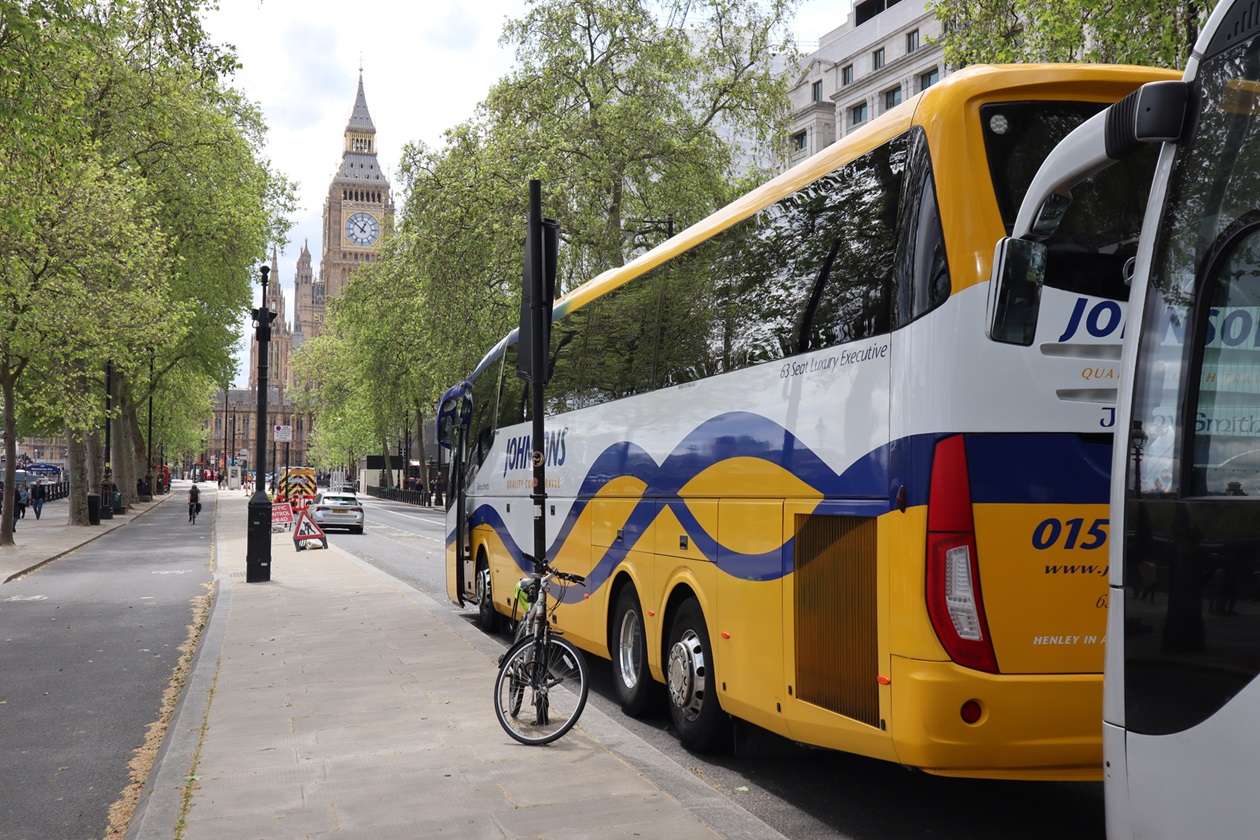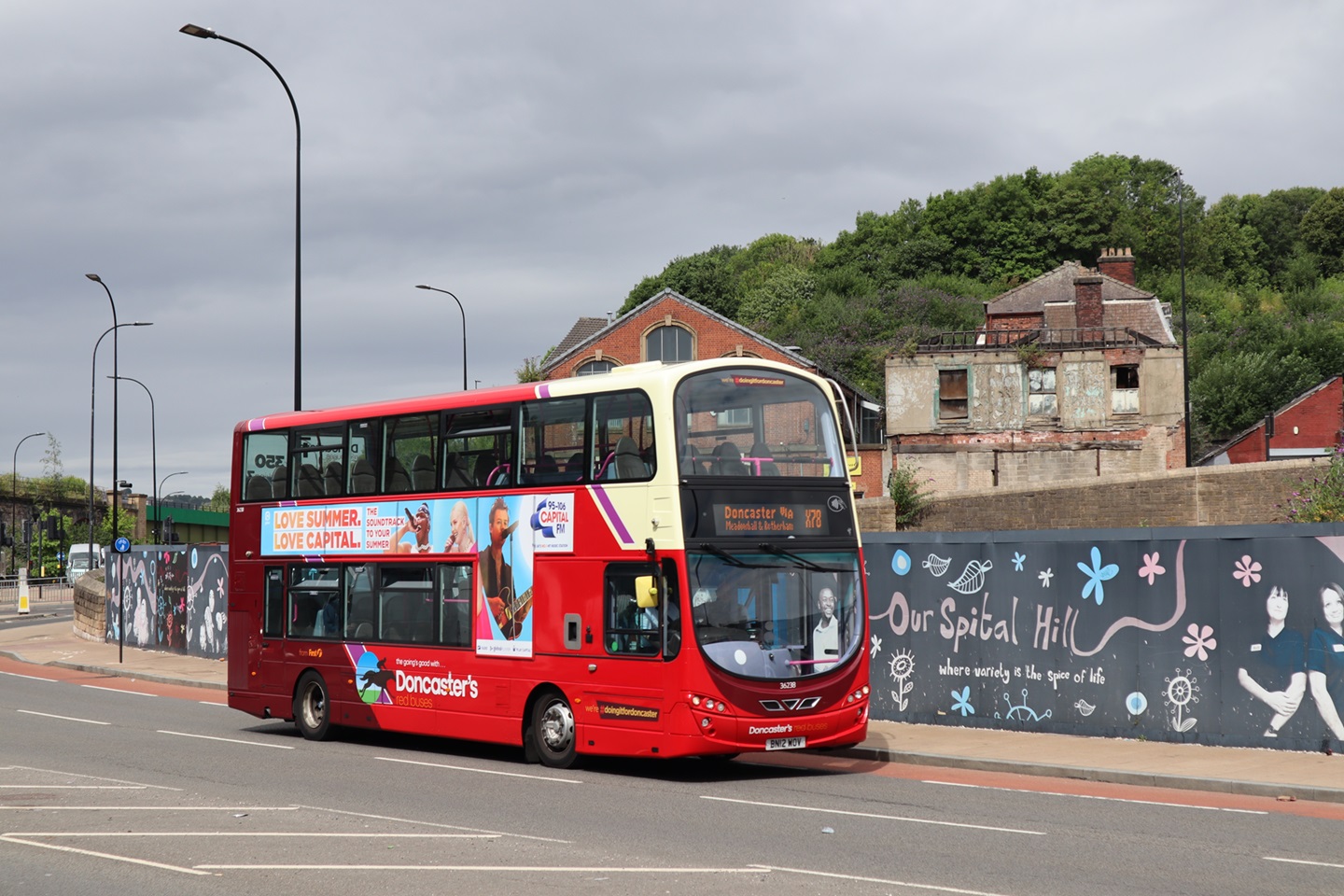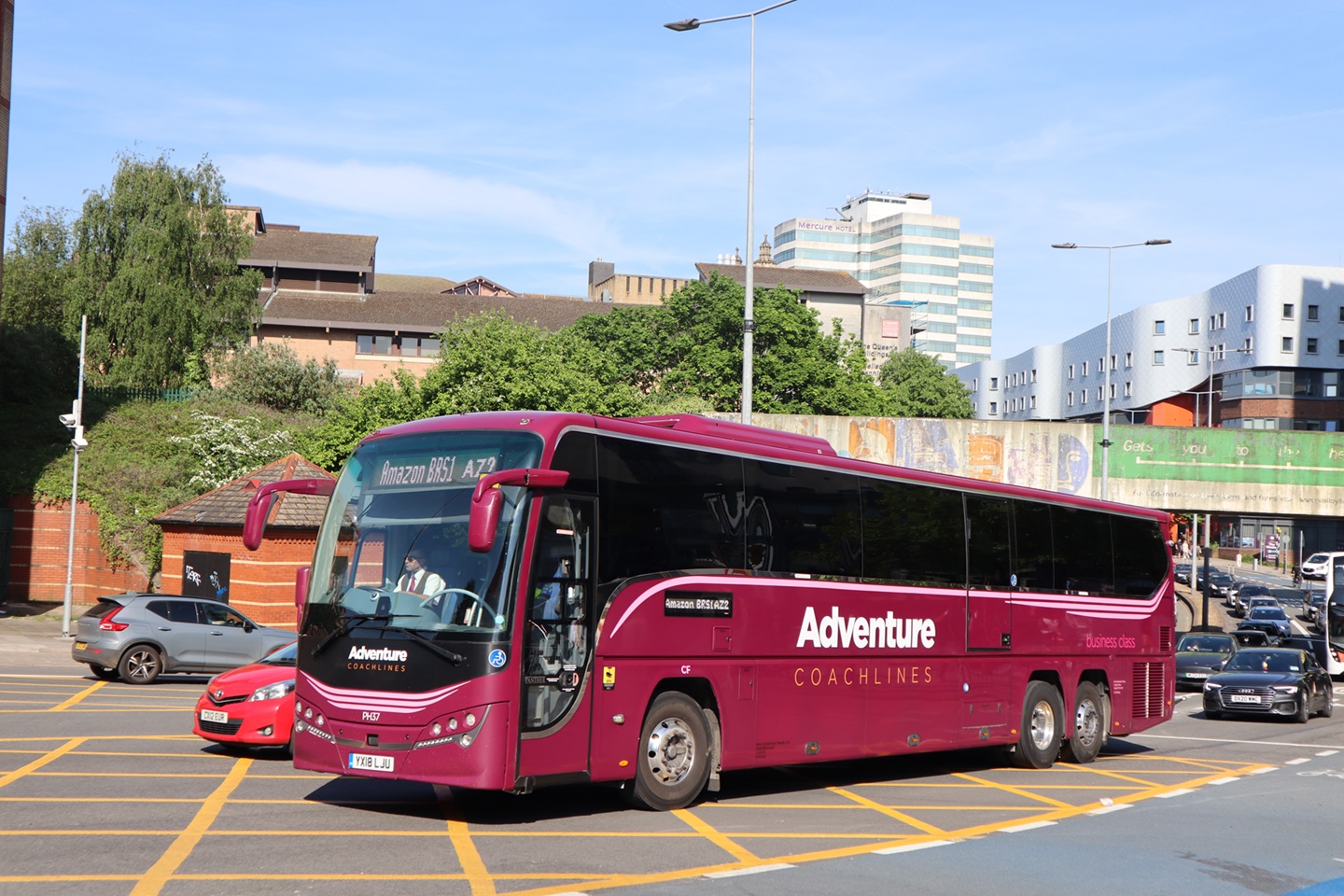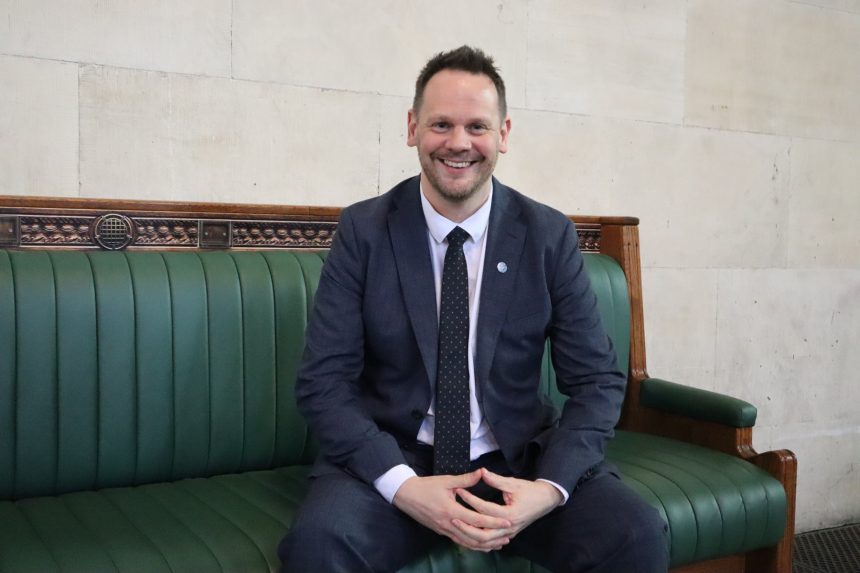Under-Secretary of State for Transport Simon Lightwood has made clear his willingness to engage with the coach and bus industry. Having taken ministerial responsibility for it after the 2024 general election and with time spent in the shadow role beforehand, he is a more familiar sight at sector gatherings than were some of his predecessors.
Communication is key for the minister, as would be expected of someone who worked in that professional field before entering Parliament. At the Confederation of Passenger Transport conference in January he aired a hope that the voice of coach and bus alike would be heard loud and clear.
Speaking to routeone in early March, Mr Lightwood underscored that position: The offer of a listening ear to coach operators in particular still stands.
But an atmosphere of engagement sits against a challenging fiscal backdrop for UK PLC. Mr Lightwood is keen that the coach and bus industry does not lose sight of the latter; regardless of recent talk around increased defence funding, the coming spending review was always going to be “really difficult,” he cautions.
That gives a clear signal that neither bus for revenue and capital work nor coach for assistance with the zero-emission transition should expect a bounty from Chancellor Rachel Reeves; the opposite is likely to be true.
Instead, Mr Lightwood majors on how longer-term clarity than is currently the case in both sectors is the focus. For bus services in England, that relates to funding. In coach, next steps for accessibility are a priority.
PSVAR in the coach sector: Thoroughness vital, says minister
Coach operators continue to await news on the review of PSVAR. The previous government initially promised it at the end of 2023. Mr Lightwood acknowledges how the series of temporary and medium-term exemptions “have gone on for some time.”
While there is no confirmed timeframe yet on when future direction will be announced, he adds that the Department for Transport continues to work with the coach sector and is looking closely at PSVAR.

“I know that operators need certainty,” he explains. “As soon as I am in a position to give that update, the industry will hear.” Not committing to a date for that is deliberate. The minister wants the PSVAR exercise to be thorough and carry due consideration of all positions.
“I want to make sure that we do this right and balance the needs of accessibility for passengers but do not put a huge burden on the coach industry,” Mr Lightwood explains.
He acknowledges that the sector has already made good progress on PSVAR, albeit with the caveat that there is still some way to go. “I want to make sure we are supportive and do this in partnership with the coach industry,” the minister continues.
PSVAR review work thus sits on the ministerial desk, and Mr Lightwood is alive to the growing need for clarity as time ticks away towards the end of the current medium-term exemption regime for coaches on 31 July 2026.
Give and take for coach in political discourse and collaboration
Also within his in tray is work started by the previous government on change to the licensing regime for the youngest PCV drivers. Its most notable proposal is removal of the 50km restriction on those aged 18 and 19, albeit with retention of the regular and special regular service stipulation. Keeping that drew criticism from some quarters upon publication of the plans in 2024.
Mr Lightwood describes the preceding administration’s work in that area as “a very focused piece of consultation.” Responses are being examined pending further steps.
“We are looking at it actively,” the minister explains. “It is also about continuing those conversations with the coach industry; making sure that the questions asked many months ago, and the feedback received, are as accurate now as they were then so we can make an informed decision on how best to support in that area.”
Will the regular and special regular stipulation for 18- and 19-year-old PCV drivers be dropped entirely? It is possible. Further discussion in that field is likely.
Less hopeful is the prospect of UK government funding towards zero-emission coach purchases, although Mr Lightwood is a further Local Transport Minister to note how that wider move is likely to follow a similar trajectory to HGV.
He observes how the market for those coaches is still at an early stage. When that is considered, progress made so far without government intervention is good, the minister adds. That it at odds with other opinions, but the message is that the coach industry should not hold its breath on financial support to move away from diesel.

Three-year bus funding settlement for services in England?
Certainty is the name of the game in bus – for operators, local transport authorities (LTAs), vehicle manufacturers, and passengers. Mr Lightwood again stresses both how growth is top of the government’s agenda and how transport will make a major contribution to delivering it. Better public transport “is absolutely vital,” he observes.
Bus operators and their representatives have continued to urge delivery of long-term clarity on funding, but the minister notes how that is a priority for authorities as well.
Mr Lightwood acknowledges how past rounds were “problematic” and hindered strategic investment decisions through their short-term nature; delivery of long-term certainty is key to undoing that, he accepts.
The spending review will define how bus support proceeds and will set wider fiscal plans for at least the next three years. In the heaviest hint yet that a longer-term approach to bus will be adopted, Mr Lightwood says that conclusion of the review “should see us through for three years’ worth of funding” for those services.
That is good news, although he cautions how there is unlikely to be a huge amount of extra money in the pot overall via any longer-term package. “But having that multi-year settlement is so important because there is more ‘bang for your buck’,” he continues.
BSOG reform now on the back burner?
Simplifying and devolving bus funding is another priority. Consolidation should help clarity; the existing approach of multiple streams is inefficient, and Mr Lightwood points to rapid removal of the competitive element to Bus Service Improvement Plan monies in favour of a fairer calculated allocation as an example of what can be achieved.
On the drawn-out overhaul of BSOG in England, messaging is mixed. Such a process began several years ago and remains unfinished. Although it falls under bus funding reform, the minister believes that BSOG as it stands delivers well enough.
“We will look at it, but fundamentally I believe that BSOG is working,” he observes. “It is already pretty good. It delivers results.” One call is for BSOG reform to incentivise zero-emission bus purchase, but Mr Lightwood adds that the government wants to remain ambitious in supporting such procurement; that will continue “where we can.”

Rebuilding user trust in bus an important task
Regardless of the funding landscape, Mr Lightwood observes how much work remains on bus services. Where passenger trust has been hit in some areas, it must be regained. “We do so by giving greater certainty that when buses turn up, they will be on time, affordable, and get people to where they need to go,” the minister adds.
Key to the future of bus in England is franchising. Mr Lightwood previously said that neither the industry nor LTAs should lose sight of how multiple approaches to it exist. The government sees “a really important role” for SME operators and community transport organisations where reregulation proceeds.
“When I talk to LTAs about franchising, they automatically think of Greater Manchester,” he continues. “But there is a plethora of different models; micro-franchising, just the routes that are already subsidised, building in demand responsive transport.” He also points to the Jersey ‘partnership franchising’ approach as one that could be exported to other areas.
Such scope should smooth the way for LTAs that decide to franchise, he believes. But Mr Lightwood adds that the government is not pushing any of them down the franchising route; enhanced partnership and removal of the ban on new municipal operators are equally important, he concludes.



























